20 Popular On-Screen Couples With Surprisingly Unhealthy Relationships
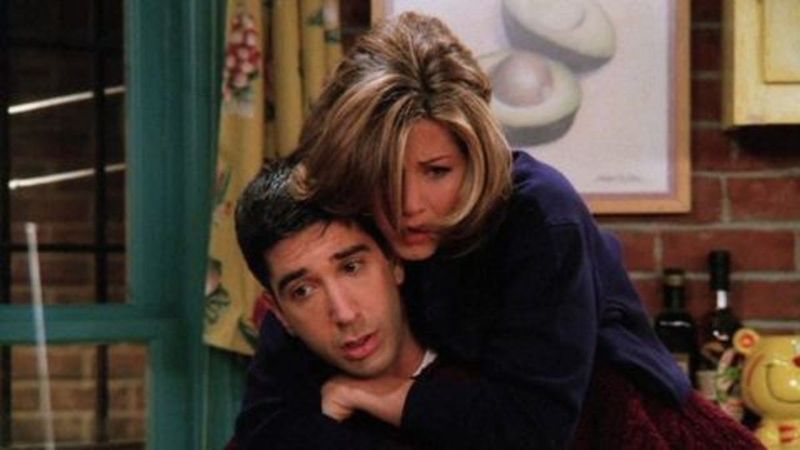
Romantic storylines in movies and TV shows are often painted with rose-tinted lenses. But if you take a closer look, many of these so-called “epic” romances are far from healthy. They might include manipulation, control, obsession, or emotional neglect—all cleverly disguised as love. This article explores 20 on-screen relationships that, while romanticized in pop culture, were actually brimming with toxicity. These pairings may have made your heart flutter once, but they offer valuable lessons on what love shouldn’t look like.
1. Sandy and Danny – Grease
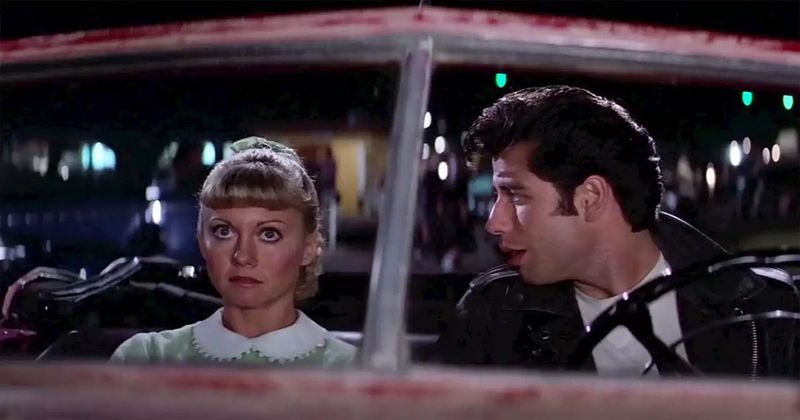
Rather than showing mutual growth or acceptance, this high school romance ends with Sandy drastically changing her identity to impress Danny. She adopts a sultry, leather-clad persona just to win over his affection after he fails to meet her halfway. The transformation is praised, not questioned.
Meanwhile, Danny’s entire arc revolves around trying to maintain his “cool guy” image in front of his friends—even if it means hurting Sandy in the process. The message? Be someone you’re not to keep someone who won’t change for you. Not exactly a healthy foundation.
2. Bella and Edward – Twilight
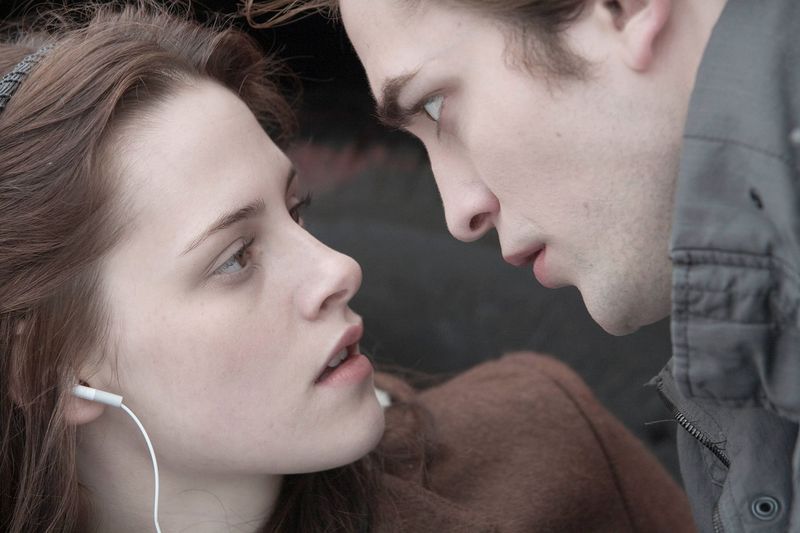
What many fans interpreted as deep, undying love is actually a story steeped in codependency and control. Edward isolates Bella from her friends, watches her while she sleeps without her knowing, and constantly warns her that he might hurt her—yet she continues chasing him.
Their dynamic glamorizes the idea of sacrificing everything, even safety and personal growth, for the sake of love. Bella’s entire identity becomes wrapped around Edward, reinforcing the dangerous idea that self-worth comes from being chosen by someone else, even if that someone is emotionally unstable.
3. Ross and Rachel – Friends
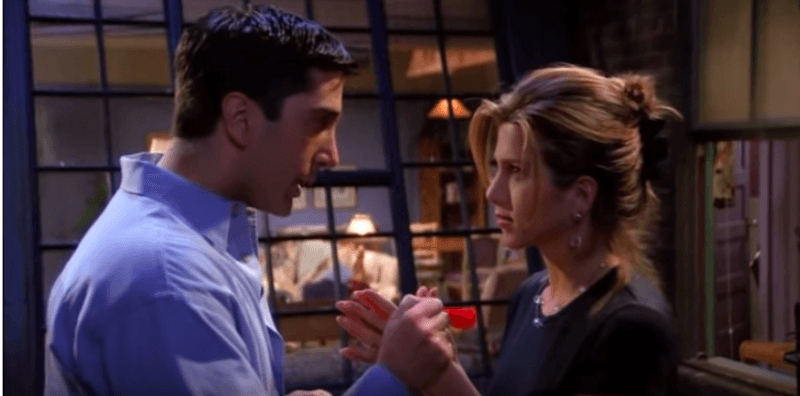
Despite the comedic packaging, their relationship is riddled with red flags. Ross is controlling and insecure, especially about Rachel’s career ambitions. His jealousy of her male coworkers and attempts to sabotage her professional life show a lack of support and trust.
Their infamous “we were on a break” saga only underlines how poor communication and emotional immaturity defined their bond. Constant breakups and reunions create a toxic loop, teaching viewers that dysfunction is a normal part of love—which it absolutely shouldn’t be.
4. Carrie and Mr. Big – Sex and the City
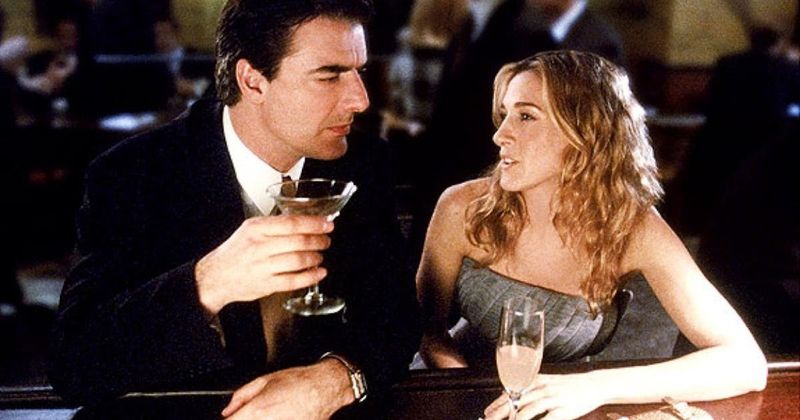
Rather than being a passionate love story, this relationship is a long-running cycle of avoidance, manipulation, and heartbreak. Mr. Big repeatedly strings Carrie along, only to retreat whenever things get serious, leaving her in emotional limbo.
Carrie, for her part, keeps returning to him despite the emotional devastation he causes. The show paints their reunion as destiny, but it’s really a cautionary tale about mistaking inconsistency and emotional unavailability for mystery and allure.
5. Daisy and Gatsby – The Great Gatsby
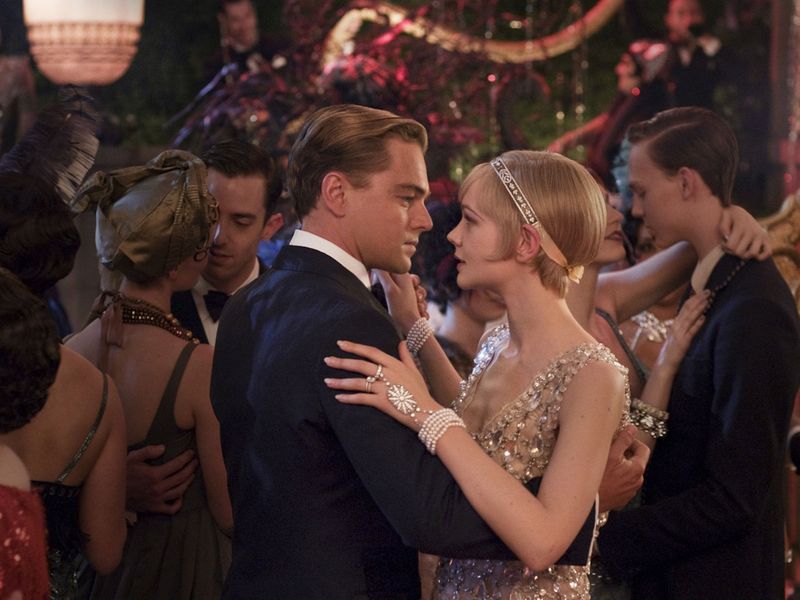
At the heart of this tragic story is a one-sided obsession. Gatsby isn’t in love with Daisy the person—he’s in love with an idealized version of her that he’s built up over the years. He throws lavish parties and reshapes his entire identity just to win her back.
Daisy, meanwhile, is emotionally unavailable and uses Gatsby to escape her miserable reality, only to abandon him when it no longer serves her. Their romance isn’t romantic—it’s built on fantasy, selfishness, and denial.
6. Harley Quinn and Joker – Suicide Squad

Their relationship is the textbook definition of abusive. Joker manipulates Harley, subjects her to psychological torture, and even physically abuses her—all under the guise of love. Yet media portrayals often stylize their bond as “crazy in love,” glamorizing what should be condemned.
Harley gives up her autonomy and identity for a man who views her as a pawn. It’s only later, in other storylines like Birds of Prey, that she begins reclaiming her power. This pairing is a stark reminder that chaos and abuse are not passion.
7. Jenny and Forrest – Forrest Gump
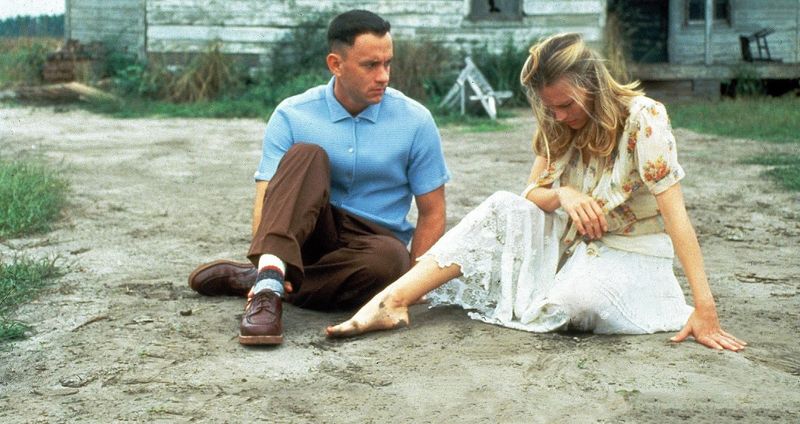
Jenny and Forrest’s relationship is filled with imbalance and emotional whiplash. While Forrest is genuine and devoted, Jenny repeatedly enters and exits his life based on her own needs—often when she’s at rock bottom.
Rather than reciprocating Forrest’s love consistently, she uses him as a safe harbor when convenient. The story frames their final reunion as tender and redemptive, but in reality, it’s the culmination of years of emotional neglect and self-serving choices.
8. Allie and Noah – The Notebook
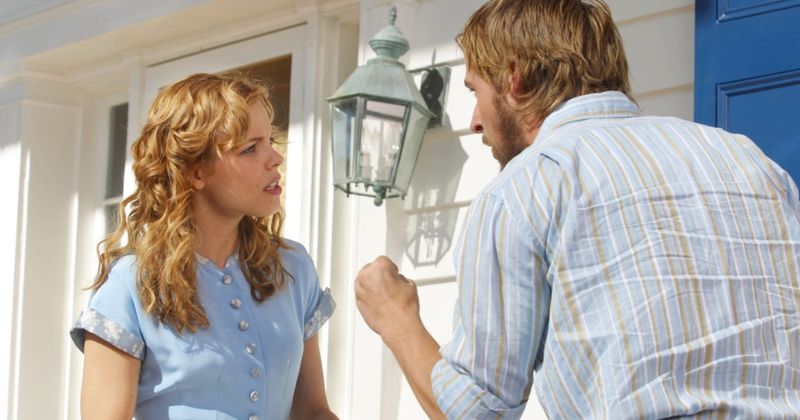
Although this love story is often held up as the gold standard for romance, it’s anything but healthy. The couple constantly fights, screams, and uses manipulation to get what they want. Their love is intense—but so is their toxicity.
Noah threatens self-harm to force Allie into a relationship, and they both regularly resort to emotional blackmail. Instead of communicating like adults, they cycle through passion and rage, misleading viewers into thinking volatility equals true love.
9. Chuck and Blair – Gossip Girl
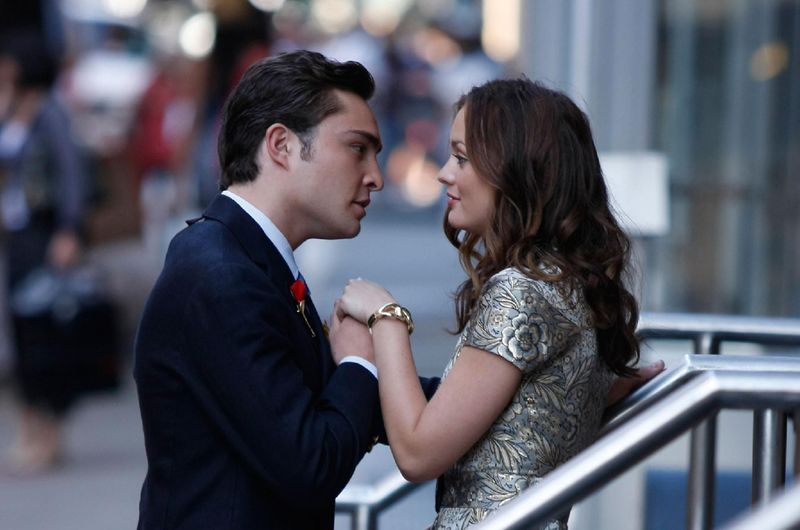
This pairing is often glamorized as passionate and dramatic, but the truth is much darker. Chuck is manipulative and emotionally abusive, once even trading Blair for business leverage—an act that should’ve ended their relationship permanently.
Even Blair isn’t innocent; she schemes and plays emotional games in return. The cycle of breaking up and making up is portrayed as glamorous when it’s really just deeply toxic. Their love story promotes the idea that emotional warfare is normal in relationships.
10. Anastasia and Christian – Fifty Shades of Grey
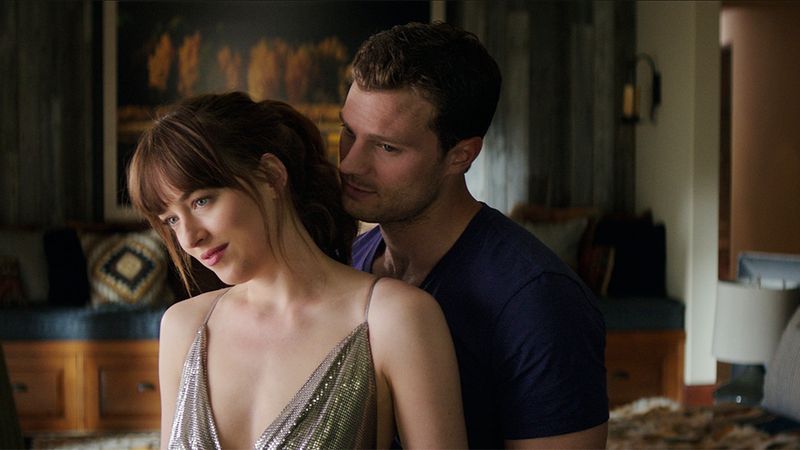
At first glance, it may seem like a story of liberation—but look deeper, and you’ll find coercion, control, and psychological manipulation. Christian uses his wealth and status to dominate Anastasia, often ignoring her discomfort and personal boundaries.
While Christian’s secret lifestyle can be healthy with clear communication and consent, this series confuses dominance with abuse. Christian’s jealousy and control issues are wrapped in the illusion of love, making it one of the most misleading portrayals of romance in recent memory.
11. Piper and Alex – Orange Is the New Black
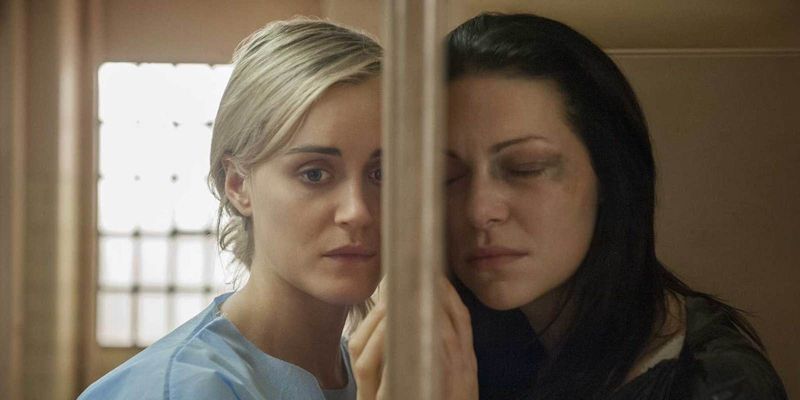
Their romance is a rollercoaster of betrayal, secrecy, and manipulation. Piper lies, Alex lies, and together they foster an environment where neither can fully trust the other. Their connection thrives in dysfunction, not stability.
Rather than growing together, they tear each other down time and again. While their chemistry is undeniable, it’s not enough to outweigh the toxic patterns they fall into. The show blurs the line between passion and destruction, sending mixed messages about loyalty and love.
12. Elena and Damon – The Vampire Diaries
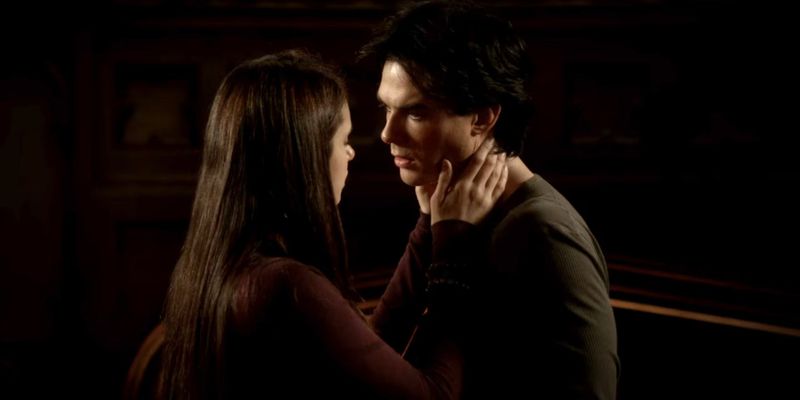
Damon’s aggressive behavior and possessiveness are too often portrayed as passionate love. He repeatedly makes decisions for Elena without her consent, including erasing her memories and using compulsion to manipulate her.
Elena’s willingness to overlook his violent past and problematic actions normalizes unhealthy relationship dynamics. Instead of holding him accountable, the story romanticizes his redemption arc, pushing the idea that love means accepting even the most dangerous flaws.
13. Tony and Maria – West Side Story
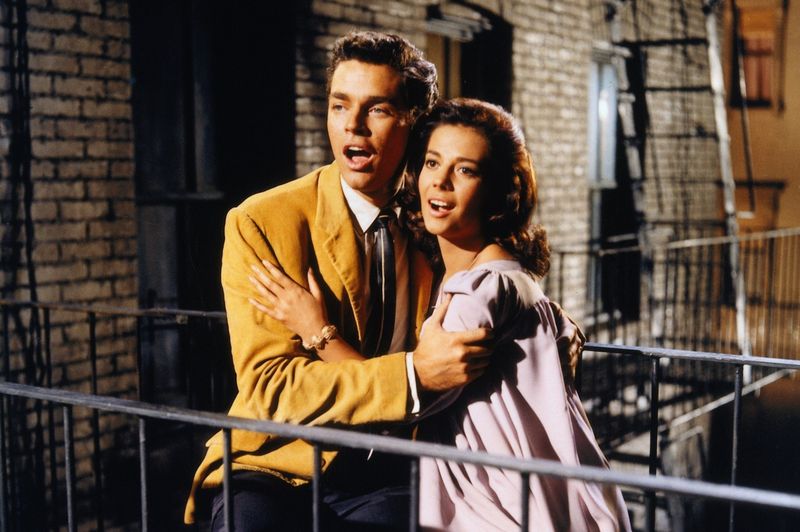
This whirlwind romance unfolds under impossible circumstances, yet it’s often romanticized as pure and tragic. Tony kills Maria’s brother in a fit of rage, and despite that, she continues to love him.
Their relationship is built on a fragile foundation of shared infatuation rather than genuine understanding. The musical’s framing paints them as star-crossed lovers, but their connection is more about escapism and emotional chaos than real love.
14. Rachel and Finn – Glee
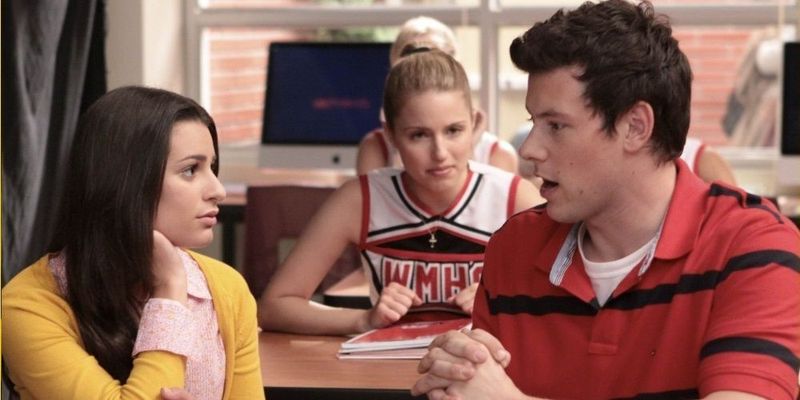
Jealousy and insecurity plague this high school couple. Finn undermines Rachel’s ambitions, while she often manipulates him emotionally to get her way. Their relationship becomes a tug-of-war between dreams and dependence.
Instead of being each other’s support system, they become distractions. The constant drama and dishonesty send the wrong message: that love means tolerating emotional sabotage. In reality, love should be about trust, not teen drama theatrics.
15. Andie and Ben – How to Lose a Guy in 10 Days
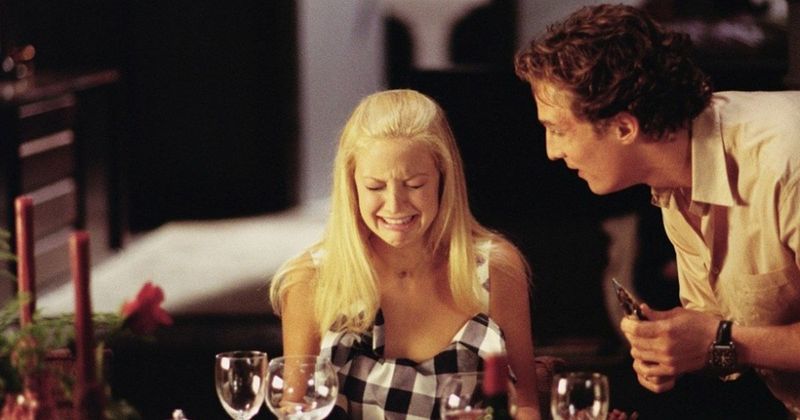
This relationship starts as a lie and evolves into a manipulative game of who can hurt who first. Both characters are using each other for professional gain, which immediately erodes any authenticity.
Despite falling for each other, the foundation of their romance is built on deceit. Their eventual happy ending glosses over the fact that emotional gamesmanship should never be part of a love story, no matter how charming the leads are.
16. Bridget and Mark – Bridget Jones’s Diary
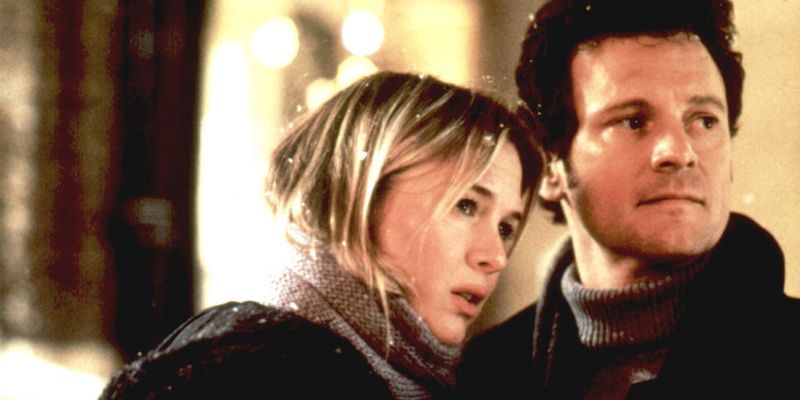
On the surface, Mark seems like the “nice guy” alternative to Bridget’s other romantic interests. But dig deeper, and you’ll find that he consistently critiques her lifestyle, appearance, and choices under the guise of honesty.
Bridget constantly feels she’s not good enough, and Mark rarely reassures her in meaningful ways. Their relationship suggests that love means putting up with subtle belittlement—as long as the partner is calm and composed.
17. Veronica and JD – Heathers
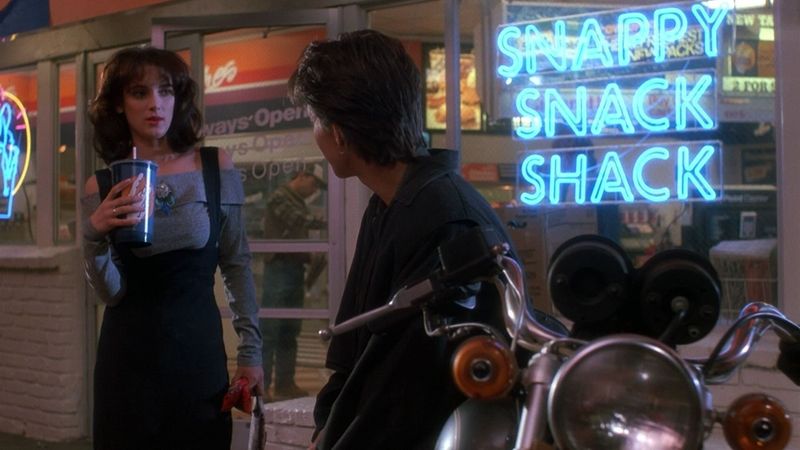
JD is the embodiment of red flags. He manipulates Veronica into committing heinous acts and then gaslights her into thinking it’s for a greater cause. What starts as teen rebellion turns into full-blown psychological abuse.
The dark comedy of the film masks the deeply disturbing nature of their relationship. Viewers are meant to be shocked, but not necessarily warned—which makes this a dangerously misleading depiction of teen romance.
18. Jim and Pam – The Office
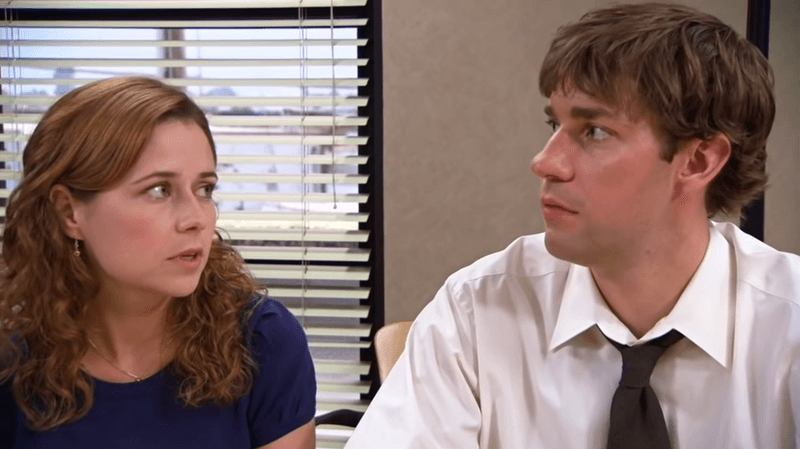
Although often viewed as the perfect workplace couple, their relationship has underlying issues. Jim regularly makes life-altering decisions—like buying a house or starting a business—without consulting Pam. She’s expected to simply adapt.
Additionally, Jim’s passive-aggressive jokes and subtle digs at Pam’s ambitions reveal an imbalance. While they care for each other, their dynamic isn’t as flawless as fans often believe. Their story normalizes neglectful behavior under the mask of comedy and charm.
19. Lorelai and Luke – Gilmore Girls
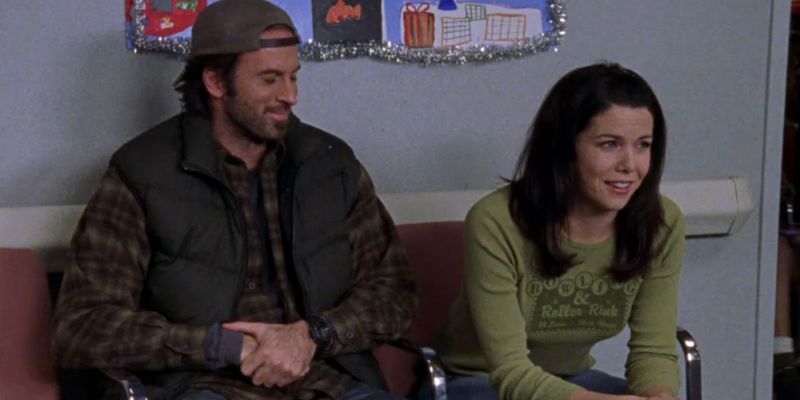
Despite years of tension and romantic buildup, their actual relationship is plagued by secrets and poor communication. Luke hides his daughter from Lorelai for months, while Lorelai avoids direct conversations about commitment.
Rather than addressing their issues head-on, they let problems fester—leading to major blowups. Their relationship is a lesson in how emotional suppression and fear of vulnerability can turn a good match toxic over time.
20. Katniss and Peeta – The Hunger Games
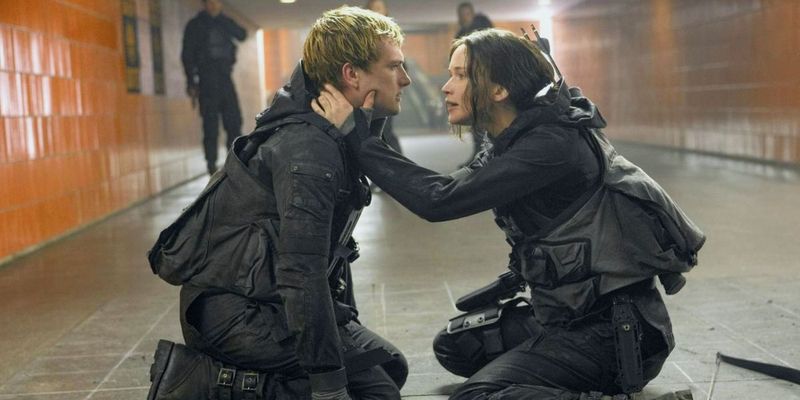
What begins as a survival strategy evolves into a complex, trauma-bonded relationship. Katniss never truly has the space to figure out her feelings, and Peeta often gets hurt as a result of the power imbalance between them.
Their connection grows not through mutual understanding, but through shared trauma and national spectacle. It’s not fair to call it a love story when neither person has the freedom to choose anything else.

Comments
Loading…